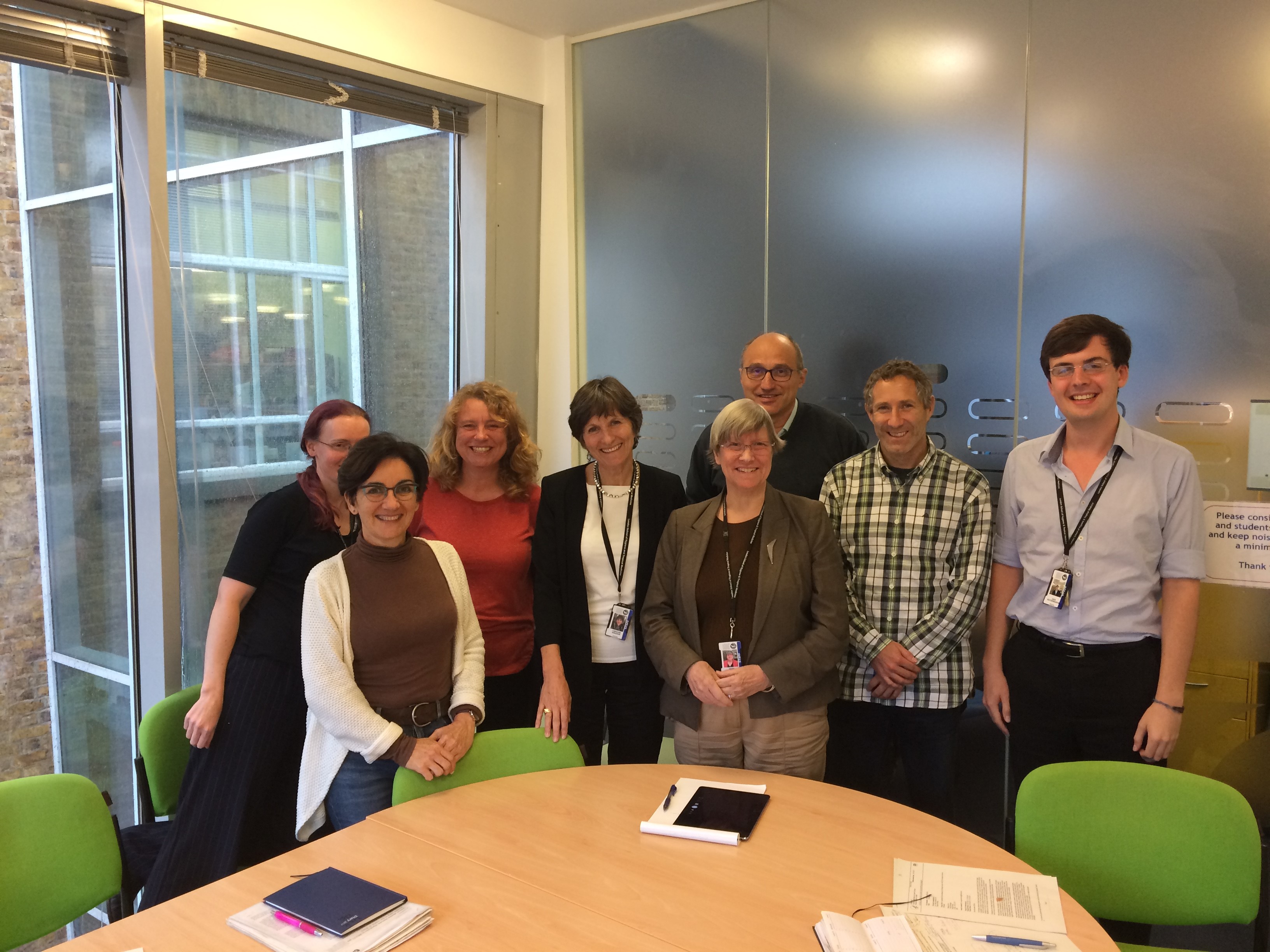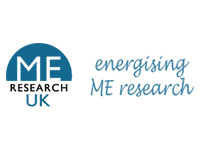Major Announcement – NIH grant renewed
$2.1M INVESTMENT IS UK’S ‘BIGGEST EVER INVESTMENT INTO PHYSICAL CAUSES OF ME/CFS ’
The CureME team at The London School of Hygiene & Tropical Medicine is delighted to announce the award of $2.1m (£1.57m) of grant funding from the United States National Institutes of Health.
The grant will fund a longitudinal study that will measure changes in the immune system and genetic profile of individuals with Myalgic Encephalomyelitis/Chronic Fatigue Syndrome.
The new award is a renewal of an initial project, which began in 2013, also made possible by funding from the NIH. The new funding will enable the current project, which is searching for biomarkers (measurable biological characteristics) of the disease, to be extended until 2021.
Dr Luis Nacul, who leads the CureME team at LSHTM and is also responsible for overseeing the UK ME/CFS Biobank, which has been built and maintained by charity support and the funding from America, welcomed the new funding and added:
“The new grant from the NIH (US) will enable, for the first time, comprehensive prospective assessments of cases of ME/CFS at regular intervals. This greatly enhances the chances of a breakthrough in the understanding of the pathophysiology of this complex disease and the identification of much-needed biomarkers for the diagnosis of different sub-groups of patients. We very much look forward to continuing our partnership with the patient community, which has been key to the success of our research so far.”
The grant will enable the collection and storage of blood samples and clinical data from a greater number of people with ME/CFS, to add to the existing resources donated by participants with ME/CFS and multiple sclerosis, as well as healthy controls.
The Biobank is the only resource in the world that includes samples from those most severely-affected – the house- or bed-bound – and is the premier resource outside of the United States for the study of the disease. All participants are examined by a clinician, and must conform to the Biobank’s rigorous protocols before donating tissue samples and data.
The UK charity, The ME Association, has been a long-time supporter of the Biobank and provides funding to support its development. Dr Charles Shepherd, the charity’s medical adviser, and chair of the Biobank steering committee, said:
“This is the biggest ever investment into the physical causes of ME and represents a significant and vital sum of money that will help scientists unravel the mysteries of this devastating illness.
The fact that the NIH has decided to provide another major grant is an important endorsement of the ME/CFS Biobank, and we would like to congratulate all the staff who have been involved in setting up and developing what has become a vital new part of the biomedical research infrastructure here in the UK.
We hope that other research groups will now start to make use of this unique resource to achieve desperately-needed breakthroughs into the cause and treatment of ME/CFS.”
The CureME team would like to thank the many participants who have contributed to the project thus far.
The research is supported by the National Institute of Allergy and Infectious Diseases (NIAID) of the National Institutes of Health (NIH) under Award Number R01AI103629. The content is solely the responsibility of the authors and does not necessarily represent the official views of the National Institutes of Health.

REACTION
“This is great news for quality research into ME/CFS. The Biobank team has always put the needs of the patient first and it’s fantastic that their good work can now continue”
— Cecilia Finnerty, Patient Representative, Action for M.E.
“Such wonderful news for people with ME. It is a privilege to serve on the Steering Committee alongside a committed professional team who have such a heart for people with this illness.”
— Hannah Clifton, Director, The ME Trust
“ME Research UK is delighted that the team has been awarded a new grant from the NIH worth $2.1m. The funding will enable further research on those affected by ME/CFS over the next 4 years and will ensure that the UK’s first biobank of human blood samples continues to be a valuable resource for all researchers in the UK and beyond.”
— Sue Waddle, Vice-Chair, ME Research UK
“Congratulations to the London School of Hygiene & Tropical Medicine team for their grant award from the NIH. This is the most important development in UK research into ME this year and all the more so because it shows the international standing of the group. Very well deserved.”
— Professor Jonathan Edwards, Emeritus Professor of Connective Tissue Medicine, University College London
KEY FACTS ON ME/CFS
ME/CFS (myalgic encephalomyelitis/chronic fatigue syndrome) is a complex, multisystem disease involving neurological, immunological and energy metabolism impairments, for which there is yet no cure or effective treatment.
The World Health Organisation classify ME and CFS as a neurological disorder and it is recognised as such by the Department of Health, Department of Work and Pensions, NICE and the Medical Research Council.
The unique and cardinal feature is post-exertional malaise – a delayed exacerbation of symptoms that follows even minimal physical or mental exertion.
Other key symptoms include overwhelming exhaustion, cognitive dysfunction, sleep abnormalities, autonomic nervous system dysfunction and pain – which can be muscular, arthralgic, or neuropathic in character.
It is currently estimated that ME/CFS affects around between 125,000 and 250,000 people in the UK – of which 20,000 are children and adolescents. In the UK ME/CFS is the commonest cause of long-term sickness absence from school.
There is a spectrum of severity. Around 25% are severely affected at any one time – being wheelchair, house, or bed-bound – often in constant pain and unable to tolerate light or noise.
Some people with severe ME/CFS have atypical seizures, speech and swallowing difficulties – the latter may require tube feeding. Fatalities, although rare, do occur.
ME/CFS is known as a fluctuating medical condition. The severity and range of symptoms can vary throughout the day, from day to day, from week to week and from month to month.
Symptoms and severity can also vary quite suddenly – a person’s health can deteriorate rapidly, leading to complete exhaustion and incapacity.
Full details of the NIH grant: https://projectreporter.nih.gov/project_info_description.cfm?aid=9380989&icde=36008823
Details of the existing project: https://projectreporter.nih.gov/project_info_description.cfm?icde=0&aid=8574256
More information about CureME at the London School of Hygiene & Tropical Medicine: https://cureme.lshtm.ac.uk/
More information about ME Association involvement: http://www.meassociation.org.uk/research2015/current-research2015/uk-mecfs-biobank2015/
For more information about the CureME team or the UK ME/CFS Biobank, please call CureME Project Manager Jack Butterworth on +44 7927 2637 or email jack.butterworth@lshtm.ac.uk, or to arrange an interview with Dr Nacul, please contact the London School of Hygiene & Tropical Medicine on press@lshtm.ac.uk, +44(0)207 927 2802.
For more information about the MEA, or to arrange an interview with Dr Shepherd or case studies of patients, please call MEA press officer, Sarah Staples, on 07917 322504.
September 2017
ME/CFS, NIH







